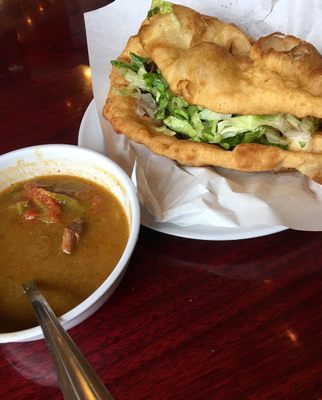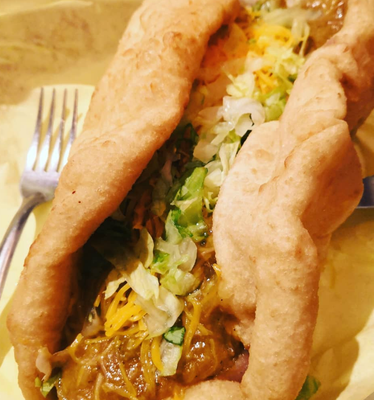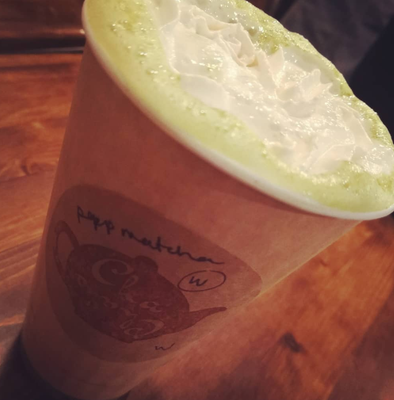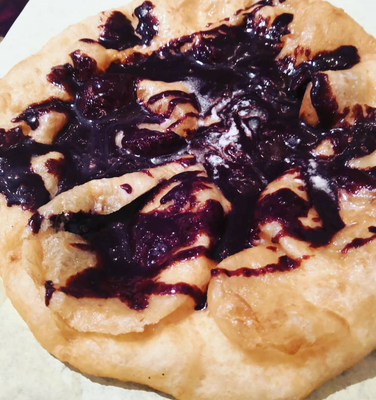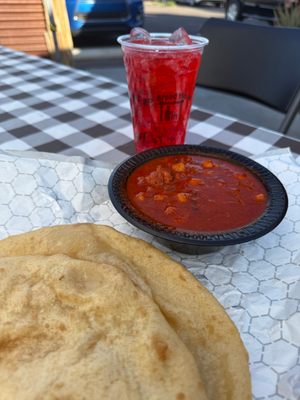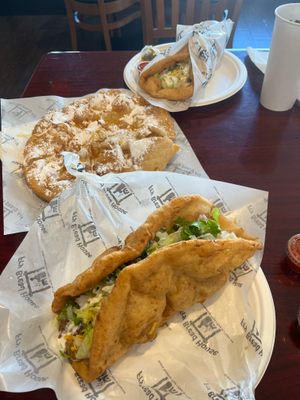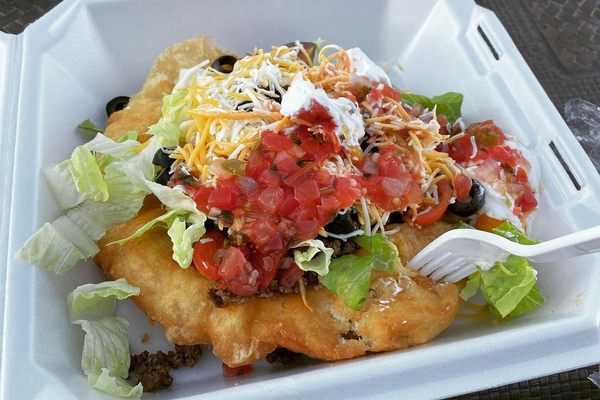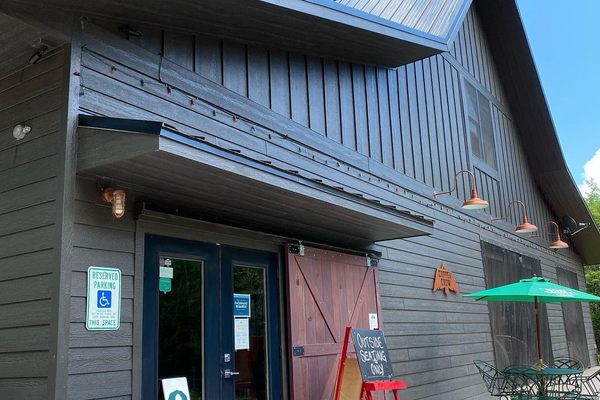About
In 1992, Cecelia Miller, a member of the Tohono O'odham Nation, opened a restaurant in Phoenix, Arizona. The shop was humble, a one-room eatery filled with the clatter of a lunchtime crowd, and it was run by an all–Native American staff. It served up straight comfort food: fry bread. Fluffy as a feather, crackly with bubbles from the fryer and slicked with grease, this Native American treat is made with white flour, baking powder, salt, and shortening. At The Fry Bread House, it's made into their signature Indian Tacos, folded and filled with chorizo, lettuce, and cheese, or sweetened with butter, sugar, and chocolate for dessert.
Fry bread has a conflicted legacy in Native Nations of the American Southwest. People like the Tohono O'odham didn't traditionally eat white wheat flour and shortening, and there's an active debate over when and how fry bread entered their diet. One story traces the origins of the bread to the U.S. government's forced migration of Navajo people from Fort Defiance, in what is now Arizona, to Bosque Redondo, in what is now New Mexico. In this version, fry bread was a creative use of unhealthy government rations of flour and lard. Other Native historians, however, claim that fry bread wasn't a starvation food at all, but a 20th-century luxury food, developed when Native people in the Southwest transitioned from traditional foods to commercially available foods such as white flour.
Either way, fry bread is now commonly served at powwows and other Native cultural events and festivals, particularly in the Southwest. For some Native people, it symbolizes perseverance; for others, it represents the violence of forced assimilation and negative health outcomes. Like many foods consumed by colonized people, fry bread's legacy is complicated.
What's not complicated, however, is the magic that Cecelia Miller and her crew make with the stuff. Warm, filling, and equal parts crispy and soft, Fry Bread House's version is like a hug on a plate. Try it in taco form, or with a side of hominy stew or red, spicy pozole. Twenty years after its opening, the restaurant was finally recognized for its work with a James Beard "America's Classics" designation, celebrating its menu, Native roots, and diverse clientele that includes Native regulars, "hipsters," and out-of-towners stopping in for a taste. While the award is an important recognition, lovers of the establishment know that its enduring legacy isn't on paper: The proof is in the fry bread.
Related Tags
Know Before You Go
The Fry Bread House is a great lunchtime stop—you'll be able to have a filling taco, side, and drink, for just about under $10—but be prepared for a rush, as it's a popular midday destination.
Community Contributors
Added By
Published
January 23, 2020
